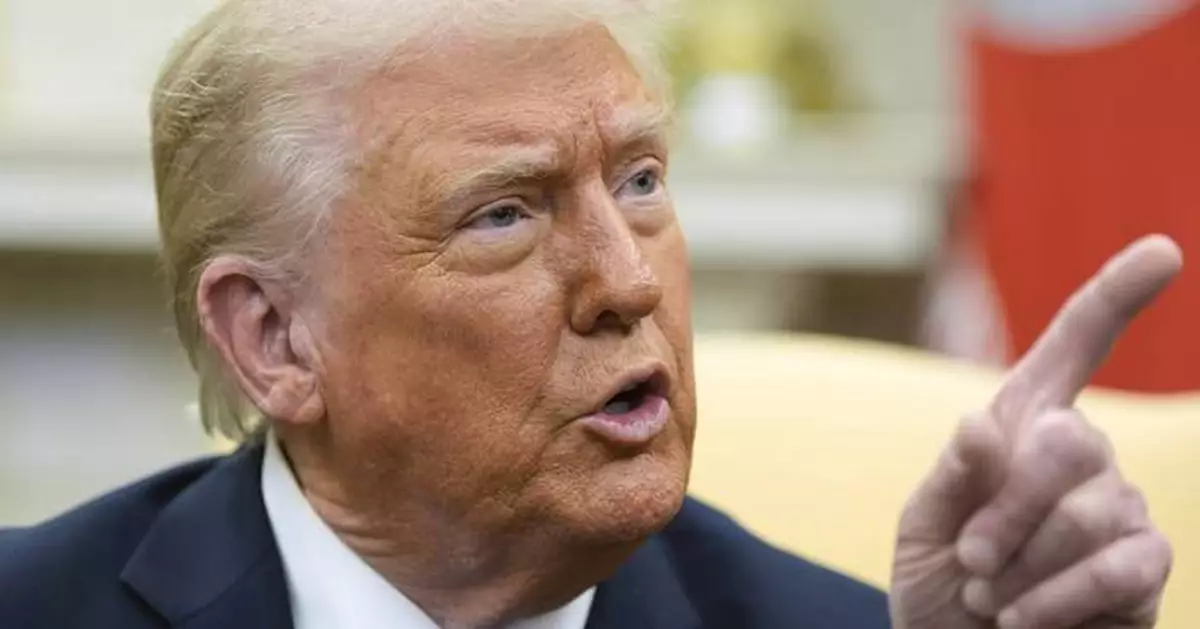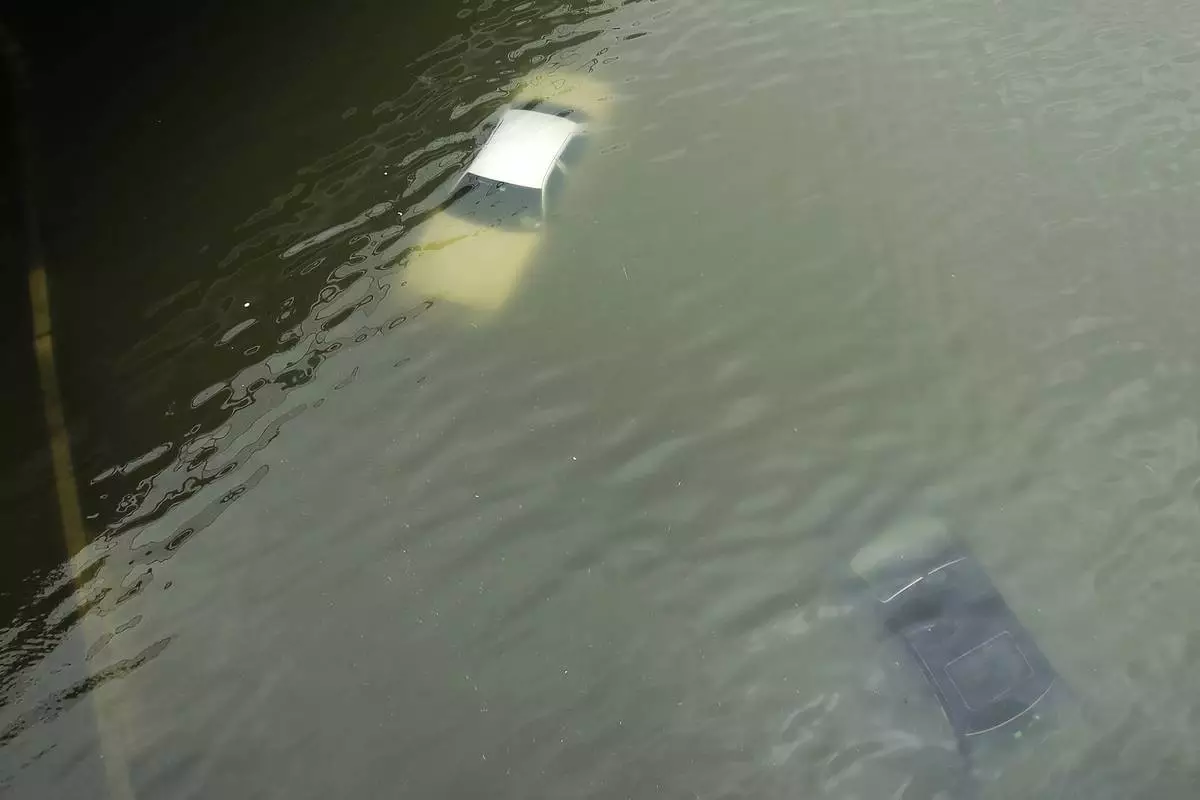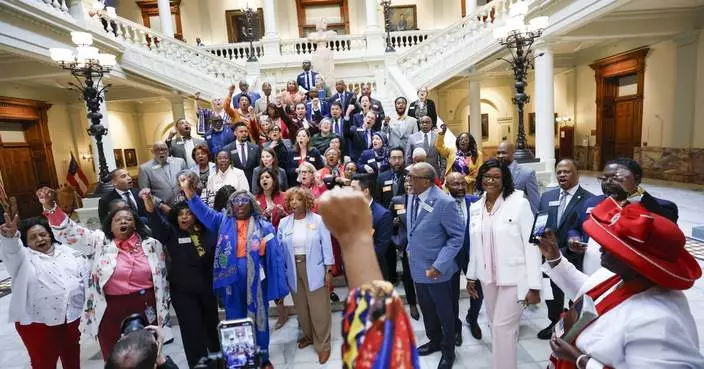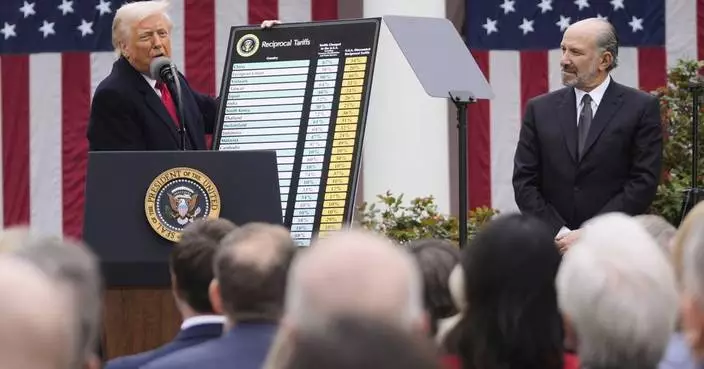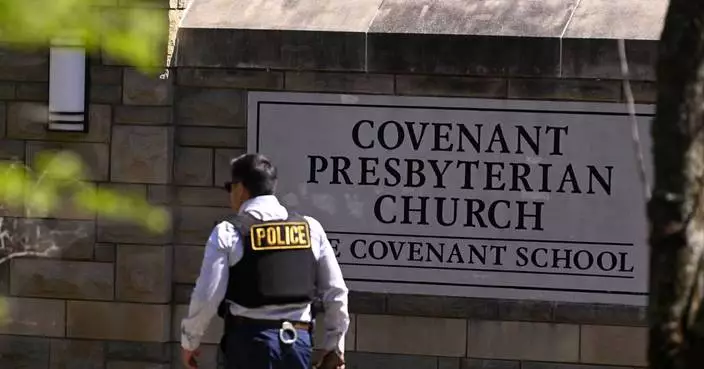President Donald Trump has just started his second term, his last one permitted under the U.S. Constitution. But he's already started talking about serving a third one.
“There are methods which you can do it,” Trump insisted to NBC News in a telephone interview on Sunday.
That follows months of Trump making quips about a third term, despite the clear constitutional prohibition on it. “Am I allowed to run again?” Trump joked during a House Republican retreat in Florida in January. Just a week after he won election last fall, Trump suggested in a meeting with House Republicans that he might want to stick around after his second term was over.
This time, Trump said Sunday, “I'm not joking.” But even some allies don't believe that. “You guys keep asking the question,” Senate Majority Leader John Thune told reporters Monday. And Trump is just “having some fun with it,” he said, “probably messing with you.”
Trump's musings often spark alarm among his critics even when they're legally impossible, given that he unsuccessfully tried to overturn his 2020 election loss and has since pardoned supporters who violently attacked the U.S. Capitol on Jan. 6, 2021.
But Trump, who will be 82 when his term ends, has also repeatedly said that this will be his last term. Trying for another also would flatly violate the Constitution. The current gambit seems more like a termed-out president trying to convince his party and the public that he could still be in power four years from now.
Here are some questions and answers related to Trump's occasional comments about a third term:
“No person shall be elected to the office of the President more than twice,” begins the 22nd Amendment, adopted after President Franklin Delano Roosevelt was elected four times in a row. He was last elected in 1944.
It's a fairly straightforward ban on serving more than two terms. Some Trump supporters argue the language is meant to apply only to two consecutive terms because Roosevelt's terms were consecutive, but notably that's not what the amendment says.
Others contend that because the ban is just on being “elected" more than twice, Trump could run as the next president's vice president and, if the ticket won, could simply replace that person if he or she resigns, a possibility the president himself floated on Sunday.
To put it mildly, that would be quite a complex plan to pull off, in no small part because Trump would be 82 during the next election, a year older than former President Joe Biden was during last year's campaign. Also, the Constitution says only people qualified to be president can be vice president, which would seem to bar Trump from pursuing the scheme.
At least one Republican in Congress has been bold enough to propose a constitutional amendment that would allow Trump to seek another term. It has no chance of going anywhere, given the high bar for amending the Constitution, and has yet to move in the new Congress' first months.
Even assuming Trump would attempt another run, a combination of election officials and courts would virtually ensure that he stayed off the ballot.
State officials have long kept would-be candidates off presidential ballots if they didn't meet the basic constitutional criteria, such as being a natural-born U.S. citizen or being at least 35 years old. They would do the same with someone clearly violating the limit on presidential terms.
A version of this unfolded in 2023, when a few states tried to keep Trump off the ballot because they found he violated the 14th Amendment's ban on officials who engaged in insurrection. The U.S. Supreme Court reversed those decisions because no one had ever used the insurrection clause on a presidential candidate before and there were a lot of legal questions about its implementation.
There would be no similar questions about the meaning of the 22nd Amendment, said Derek Muller, a professor at Notre Dame Law School.
“You would not have the factual disputes, so it would be much wider,” Muller said of the number of states keeping Trump off their ballots. “I'm not persuaded the Supreme Court is going to roll over.”
Trump has a long history of taunting his critics to flex his power, but there also could be a strategic reason for his keeping the third-term discussion alive.
Trump is a lame duck president in his final term. Because termed-out politicians will never be on the ballot for the same office again, their political clout usually wanes quickly. The third-term flirtation is a way to try to convince people that Trump will be around in the future.
Trump's aggressive actions at the start of his new term shows that he knows his time is dwindling, Muller said.
“He's governing like he's a lame duck right now, with nothing to lose,” he said.
__
Lisa Mascaro in Washington contributed to this report.

Protesters hold a demonstration outside a Tesla showroom in Santa Monica, Calif., on Saturday, March 29, 2025, against U.S. President Donald Trump and Tesla CEO Elon Musk. (AP Photo/Damian Dovarganes)
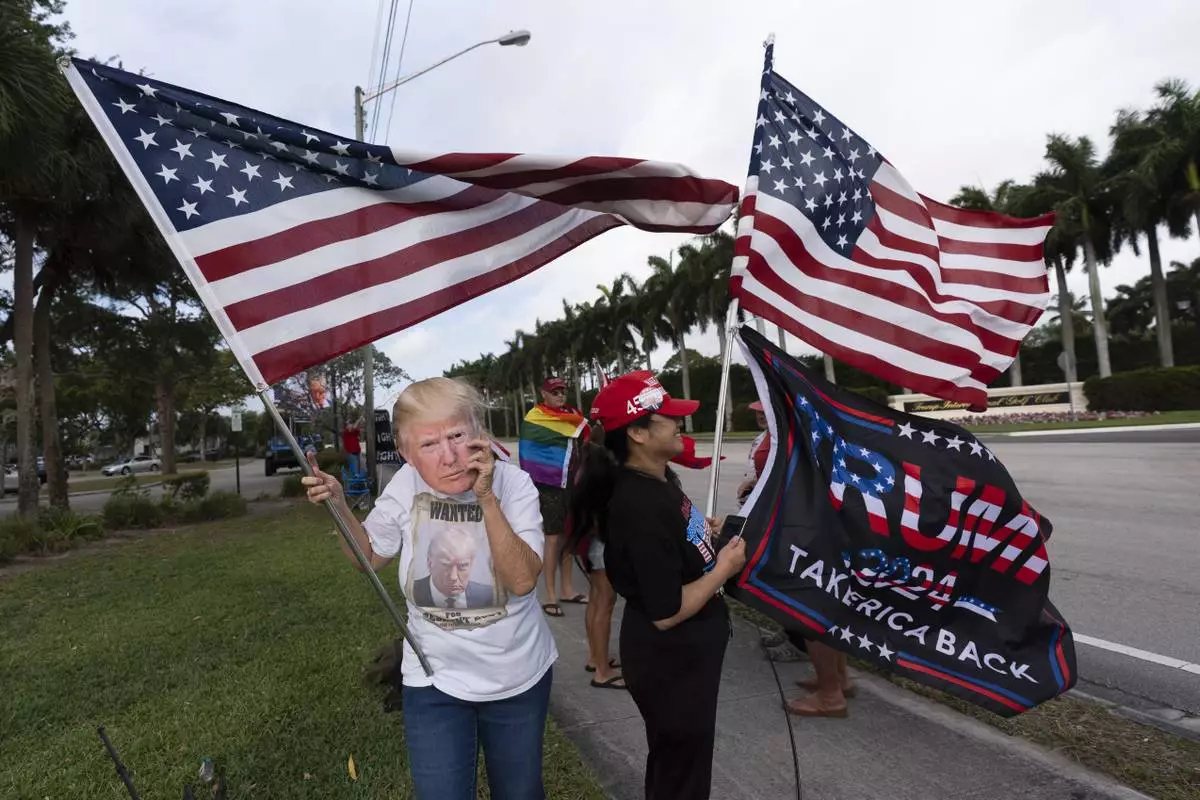
Susan MacLean, left, with fellow supporters of President Donald Trump, wears a Trump mask as they gather and wait for the arrival of Trump outside the Trump International Golf Club, Sunday, March 30, 2025, in West Palm Beach, Fla. (AP Photo/Manuel Balce Ceneta)
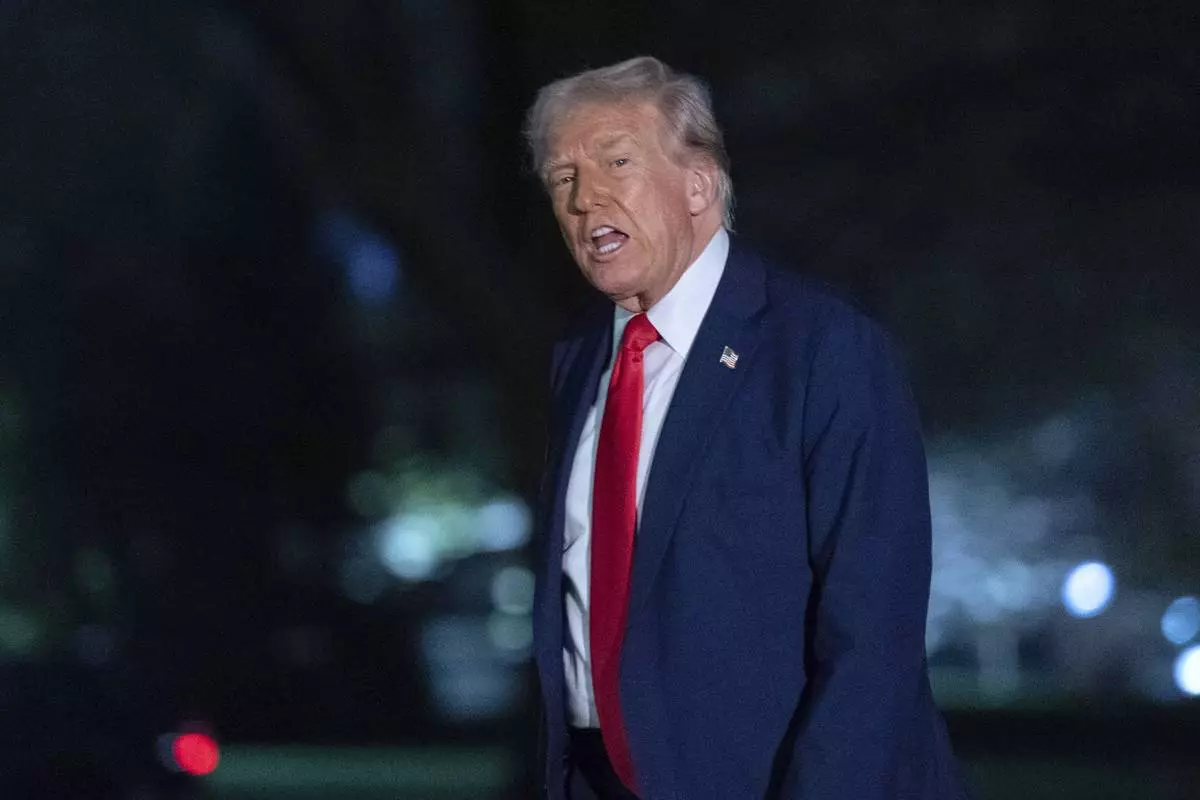
President Donald Trump talks to reporters as he walks on the South Lawn of the White House, in Washington, Sunday, March 30, 2025. (AP Photo/Jose Luis Magana)

President Donald Trump boards Air Force One at the Naval Air Station Joint Reserve Base in New Orleans, Sunday, Feb. 9, 2025. (AP Photo/Ben Curtis)
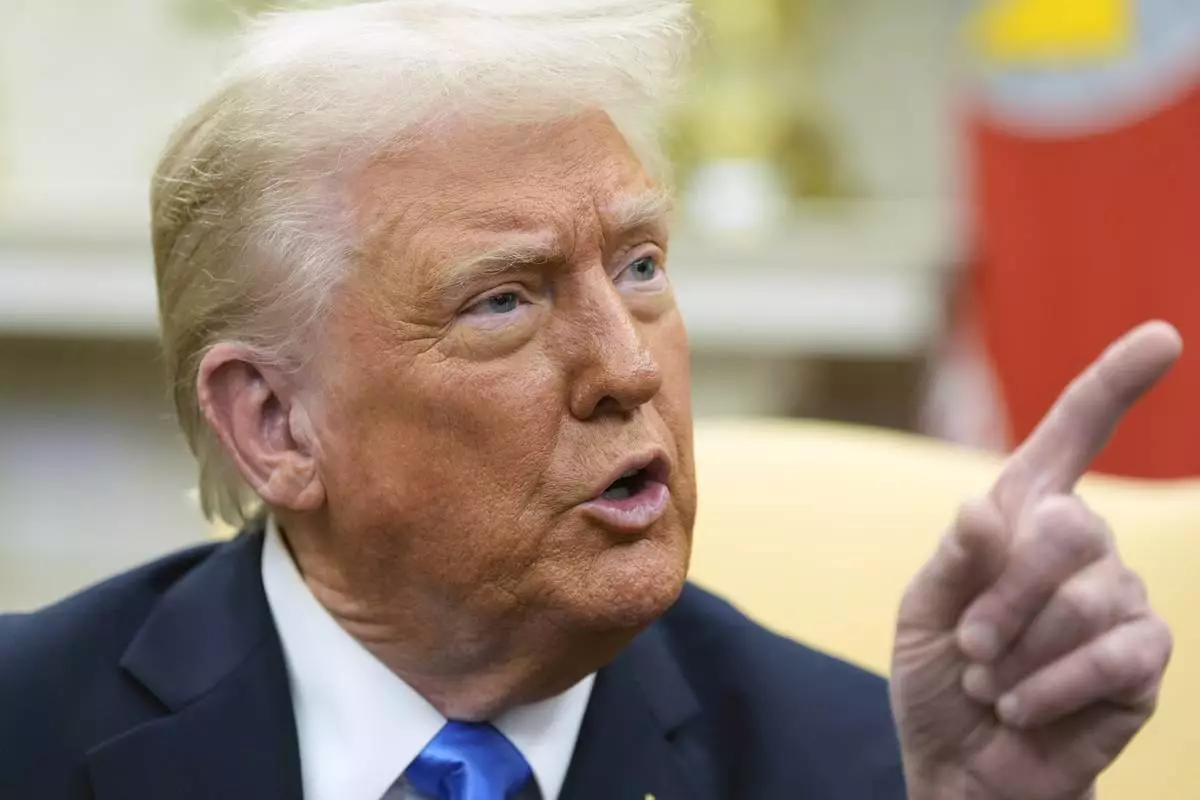
President Donald Trump speaks during a meeting with Jordan's King Abdullah II in the Oval Office at the White House, Tuesday, Feb. 11, 2025, in Washington. (Photo/Alex Brandon)


